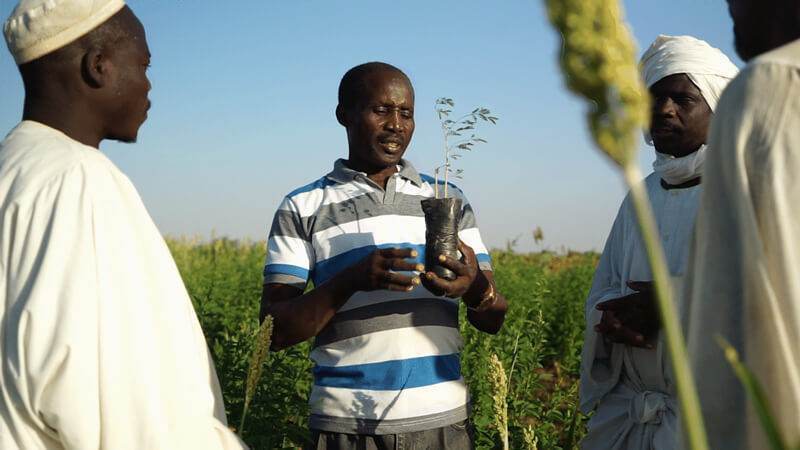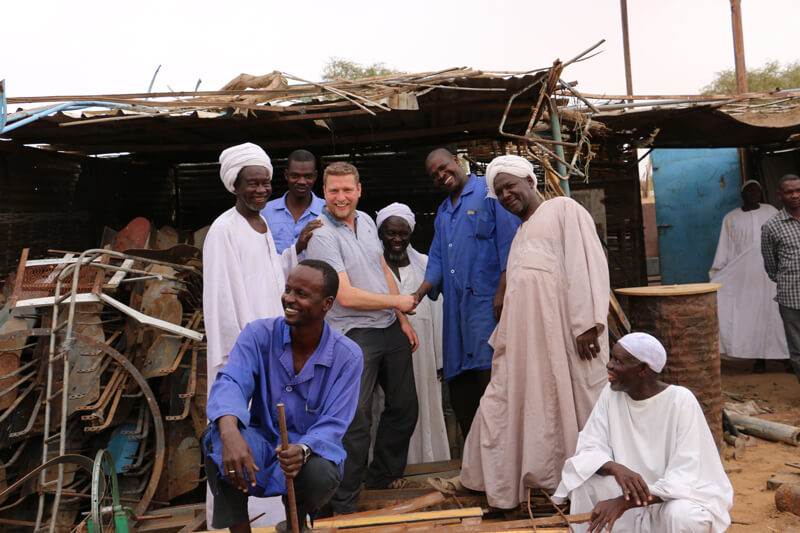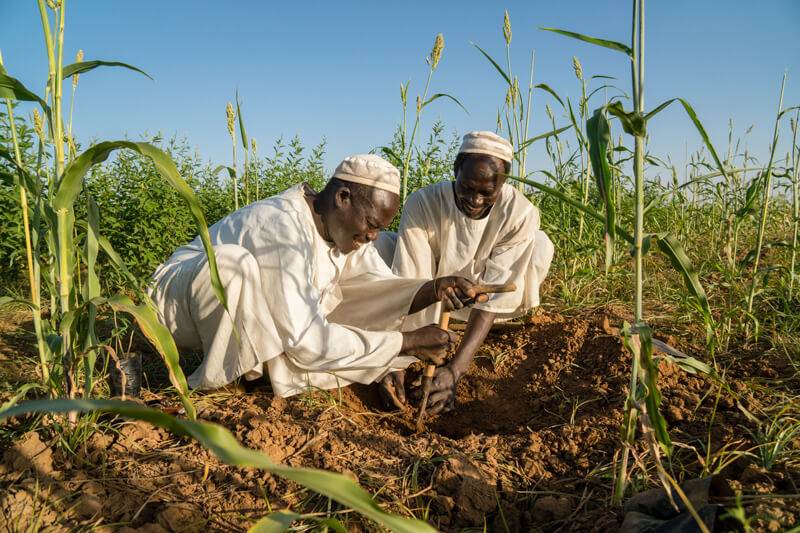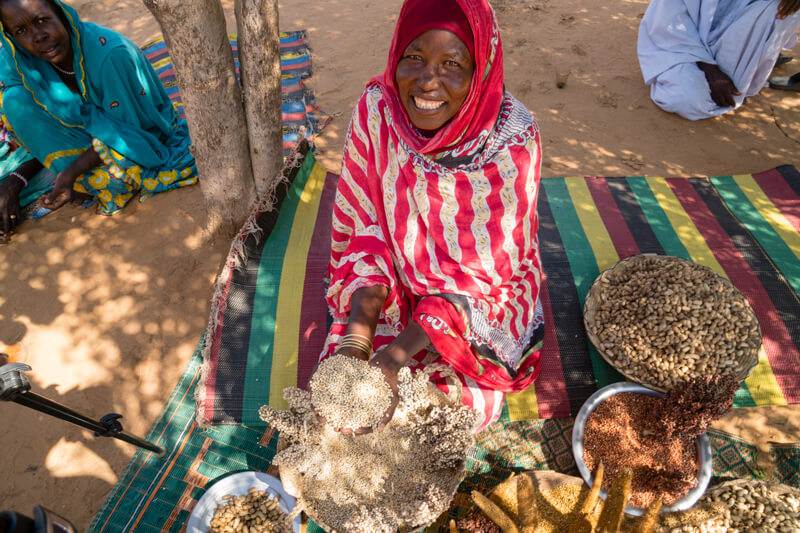Al Hafiz and Sitelnisa may be gushing with praise now, but the farmers in Majdoub weren’t always easy to convince. In fact, the mere act of creating trust in remote villages in a region as damaged as Darfur takes years – even for other Darfurians.
And once a basic level of trust is in place, confidence still has to be hard-earned, as Practical Action project manager Awadalla Hamid knows only too well. He told me:
“We have to prove that our work will benefit the people,
so we show them the benefits with their own eyes.”
“We divide a field up into two and show them how the crops would grow with their methods and how they grow with our techniques.
“Once they see that the crops are growing better with our techniques, everyone copies them and people want to work with us. It is up to us to make sure we are working with the people who will share the knowledge as much as possible.”
Now, evening talk between farmers in Majdoub has transformed from one focused on where they should go to earn a better wage, to geeky conversations around which seed varieties work best and how to best to space out lentils – the best way of sharing best practice.
As I stood watching the sun set on the village, a rowdy 15 vs 15 football match was being played out in front of me – a sign that the village was returning to normality.
The quality was ‘mixed’, but the physicality and fitness levels were striking and pointed to an impressive improvement in the health and wellbeing of everyone in Majdoub.
As I watched another shot at goal miss by a mile, I reflected on the staggering facts the local health worker, Abdallah, a tired-looking 34-year-old, had told me earlier.
He told me in the past their figures showed a horrific 90% of children suffered from malnutrition, reduced to 34% in just four years. Likewise, one in ten pregnant women used to miscarry, a figure now reduced to one or two per hundred.
He told me: “There was not enough food, and when this is combined with disease, it makes the situation worse. There was also the poor quality of the food.
“Now we have increased crop production. In the past we would depend on one crop but now more are cultivated. We also now have two growing seasons, so people have two sets of harvests.
“We used to see up to 150 people a week but no it is down to around 85. Because the numbers have reduced the level of healthcare they get is better. I used to get tired because there were just so many patients.
“One patient said to me we used to spend all our money at the health centre, but now we can invest elsewhere.”
But the final word must come from Hafiz, the unlicensed street trader-turned farmer.

“The most important thing to me is security and to sustain the world. We need to be careful of all the things that could harm us and we need to use all the techniques that keep it sustainable. We are all living in one home and using the same resources.”
When you hear how a diamond geezer like Hafiz has turned from being a dodgy salesman to a fully paid-up ambassador for sustainable agroecology, you know your day can’t get any better.


